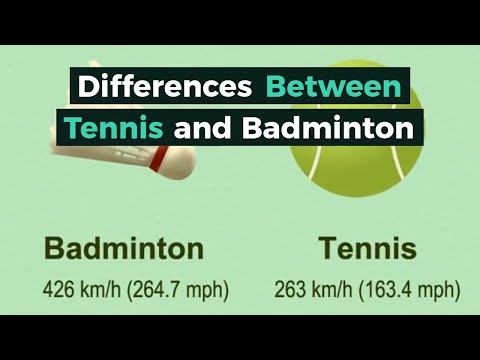What Are the Educational Requirements for a Sports Psychologist?
Contents
- Are sport psychologists in demand?
- What do sport psychologists study?
- What is educational sport psychology?
- What can I do with a sport psychology degree?
- What are the 10 areas of sport psychology?
- What do sports psychologists do on a daily basis?
- What do clinical sport psychologists do?
- How much do NBA sports psychologists make?
- How much do NFL sports psychologists make?
- What are the negatives in sports psychology?
- Is a sports psychologist a therapist?
- What is the best career in psychology?
- Do NBA teams have sports psychologists?
- Do sports psychologists travel with teams?
- What are the three major topics in sports psychology?
- What are 3 benefits of sports psychology?
- What makes a good sport psychologist?
- What is the need of psychology in the field of physical education?
- Why do we need to study sports and exercise psychology?
- What is the need and importance of sports psychology in physical education?
- What percentage of sport is mental?
- Why do elite athletes need sports psychologists?
- How many hours do sports psychologist work?
- What does a day as a sports psychologist look like?
- Conclusion
A master’s or doctorate degree in clinical, counseling, or sport psychology is required for the majority of roles. Even so, you’ll need to take extra coursework in kinesiology, physiology, sports medicine, business, and marketing. Direct experience and training in the application of psychology to sports and exercise is required.
Similarly, How long does it take to get a PhD in sports psychology?
between four and seven years
Also, it is asked, What major is sports psychology?
A bachelor’s degree in psychology or a minimal number of credits in psychology or another sports-related area is usually required for admission to a graduate program in sports psychology.
Secondly, What undergraduate degree is best for sports psychology?
Degree in Kinesiology with an emphasis in Sport, Exercise, and Performance Psychology and a specialization in Exercise Science. Many students interested in sport, exercise, and performance psychology opt to study in both Kinesiology and Psychology.
Also, Is sports psychology a good career?
With a background in sports psychology, you’ll be better able to assist clients who have reached a plateau or are feeling frustrated in their training. You can boost your athletes’ performance while also advancing your own career if you can work with them through both mental and physical hurdles.
People also ask, How hard is it to become a sports psychologist?
Most states need a PhD in psychology to become a licensed clinical sports psychologist. After that, you must work for two years under the supervision of a professional psychologist and pass a qualifying test. While it is possible to practice sports psychology without a license, most companies do.
Related Questions and Answers
Are sport psychologists in demand?
“Sport psychologists are in more demand to treat both sports performance and mental health problems, which is excellent not only for the discipline of sport psychology but also for athletes and the broader public.”
What do sport psychologists study?
Sport psychology is a talent that combines psychological knowledge and abilities with sports knowledge and skills to address players’ optimum performance and well-being, developmental and social elements of sports participation, and systemic difficulties in sports contexts and organizations.
What is educational sport psychology?
The majority of educational sport psychologists are not licensed psychologists. Their education includes exercise and sport science, physical education, kinesiology, and the psychology of human movement, particularly in relation to sport. They often have further counseling training.
What can I do with a sport psychology degree?
You might work as a full-time sport psychologist or mix consulting, teaching, and research throughout your career. You might work for a local health authority or on a GP exercise referral network as an exercise psychologist. Exercise programs might potentially be evaluated at businesses, prisons, or mental facilities.
What are the 10 areas of sport psychology?
Mental toughness, self-efficacy, arousal, drive, dedication, competitiveness, and control are only a few of them. Mental toughness is a psychological advantage that allows one to constantly perform at a high level.
What do sports psychologists do on a daily basis?
A sports psychologist’s most typical duty is to teach mental techniques for improved performance. A mental game specialist may help you increase your athletic performance by increasing your confidence, concentration, composure, intensity, and trust. These mental talents aid athletes in improving their performance as well as other aspects of their lives.
What do clinical sport psychologists do?
Clinical sport psychology is a branch of psychology that combines clinical and sport psychology. Depression, anxiety, eating disorders, trauma, interpersonal issues, and a variety of other mental health issues are addressed by clinical sport psychologists.
How much do NBA sports psychologists make?
What do NBA sports psychologists get paid? The same may be true for NBA psychologists, who are likely to earn $100,000 or more per year while working with the best players in the world.
How much do NFL sports psychologists make?
The average income for sports psychologists, according to Ziprecruiter.com, is $72,255, with a range of $20,000 to $157,500. (Ziprecruiter.com). According to the website, most psychiatrists make between $40,000 and $95,000 each year.
What are the negatives in sports psychology?
The Drawbacks of a Sports Psychology Career For those who are more autonomous, the focus on collaboration may be problematic. Extensive education, training, and experience are required. Bachelor’s and master’s degree holders often have less opportunities.
Is a sports psychologist a therapist?
Athletes need sports psychologists to perform at their best. They may work as trainers, consultants, or therapists, among other things. Eating problems and job changes may be addressed by sports psychologists.
What is the best career in psychology?
Psychology’s Top 5 Highest-Paying Jobs Psychologist at an outpatient care center. Psychologist who specializes in industrial and organizational psychology. Psychologist who specializes in forensics. Psychologist for the military. Psychiatrist. Education.
Do NBA teams have sports psychologists?
Since then, almost every NBA club has employed full-time psychologists. In 2011, Indiana became the first NBA club to have a psychologist’s office on-site and accessible to its players at all times, even while the team was on the road.
Do sports psychologists travel with teams?
When dealing with a professional athlete or a team of athletes during hectic sports seasons, the task of a sports psychologist may be rather hard. The psychologist is obliged to travel with the team throughout the season, which means he or she will be on the road a lot.
What are the three major topics in sports psychology?
Mental fortitude. Mental toughness is a psychological notion that coaches and players acknowledge as critical for training and competitive success (Gucciardi, Peeling, Ducker, & Dawson, 2016). Motivation. Setting and achieving goals. Arousal and anxiety. Confidence
What are 3 benefits of sports psychology?
Athletes’ Benefits from Sports Psychology Improve your attention and manage distractions. Boost the confidence of sportsmen who are having concerns. Develop coping mechanisms for dealing with setbacks and mistakes. Determine the appropriate level of intensity for your sport. Assist teams in improving their communication and cohesiveness.
What makes a good sport psychologist?
The following qualities were thought to characterize the top sports psychologists: Likable, and he had something really practical and useful to say. Flexible and capable of delivering person-specific input to fit unique requirements. Accessible enough to build a connection with individual athletes, with a caring demeanor.
What is the need of psychology in the field of physical education?
Answer. Finally, sports psychology may be stated to have a critical part in improving the performance of athletes. It focuses on mental traits such as attention, confidence, emotional control, and dedication, among others, that are necessary for good performance in sports and games.
Why do we need to study sports and exercise psychology?
A sport and exercise psychologist’s function is critical in the realm of sport as well as in public health. Sport psychologists use psychological understanding to help coaches, athletes, and top athletes enhance their performance.
What is the need and importance of sports psychology in physical education?
Sports psychology aids in the comprehension of athlete or sportsperson conduct in competitive sports. Coaches learn about athletes’ interests, attitudes toward physical activity, instincts, desires, and personalities.
What percentage of sport is mental?
According to studies, generic psychological measurements of personality structure and mood state may identify between 70 and 85 percent of successful and unsuccessful athletes, a level that is superior than chance but inadequate for the goal of choosing athletes.
Why do elite athletes need sports psychologists?
Reevaluating a circumstance in order to transform a negative into a positive may frequently aid in promoting a challenge mood and improving performance. Visual imagery, in which athletes playback positive pictures of prior accomplishments, is widely recommended by sports psychologists to assist athletes transition from a danger to a challenge condition.
How many hours do sports psychologist work?
Sports and exercise psychologists often work from 9 a.m. to 5 p.m. five days a week. However, to accommodate athletes’ training and performance schedules, additional nighttime and weekend labor may be necessary from time to time.
What does a day as a sports psychologist look like?
On a daily basis, you may consult with patients, investigate therapy possibilities, and provide treatment recommendations. You may also function as an athlete’s support system by providing coping skills to the patient while they are playing to help them enhance their performance.
Conclusion
This Video Should Help:
The “how long does it take to become a sports psychologist” is one of the most difficult questions. It takes years of education, experience and training to be able to work as a sports psychologist.
Related Tags
- what is a sports psychologist
- where do sports psychologists work
- pros and cons of being a sports psychologist
- what does a sports psychologist do
- sports psychology salary with master’s






